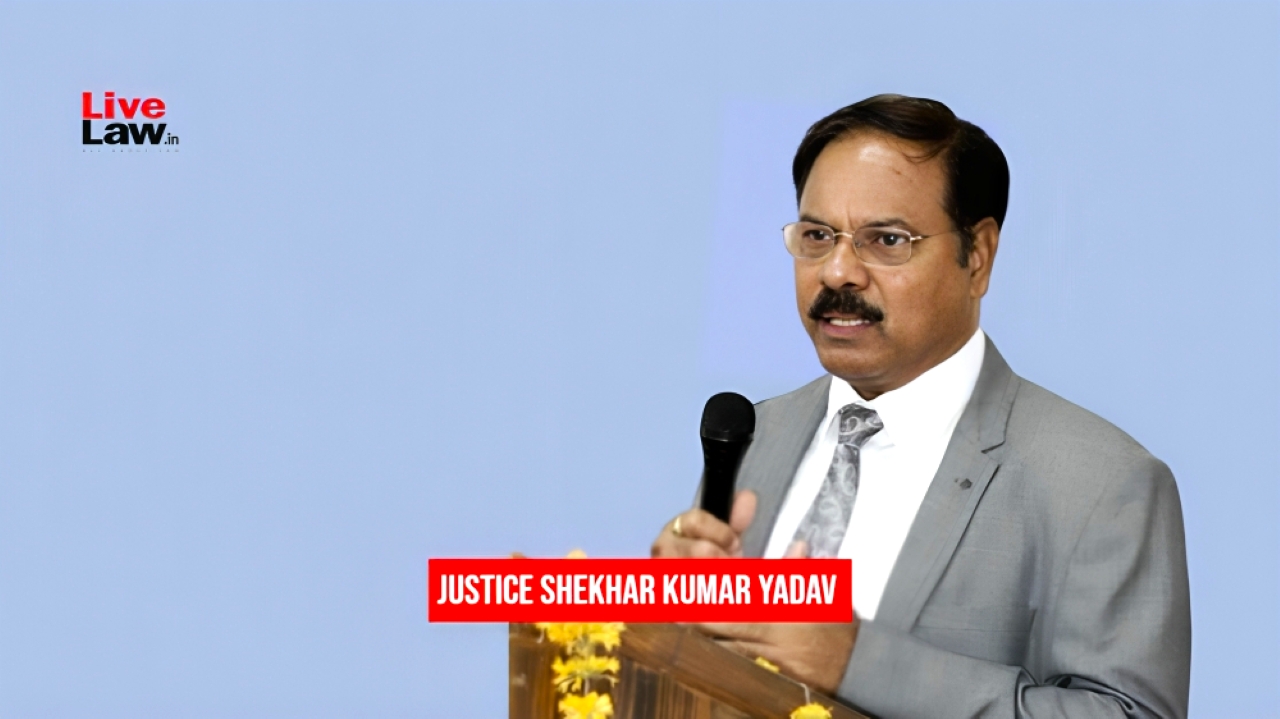 |
|
The Indian legal landscape is currently witnessing a significant development with the filing of an impeachment motion against Justice Shekhar Kumar Yadav, a judge of the Allahabad High Court. This motion, submitted to the Rajya Sabha, the upper house of India's Parliament, represents a serious challenge to the judge's position and raises crucial questions about judicial conduct, freedom of speech, and the delicate balance between individual expression and the responsibilities inherent in holding a high judicial office. The motion, signed by 55 Rajya Sabha MPs, surpasses the required 50, highlighting the significant level of concern amongst parliamentarians regarding Justice Yadav's actions. The move is not taken lightly, given the rigorous process and high threshold for removing a judge from office in India. The gravity of the situation underscores the potential ramifications for the judiciary and the wider political landscape.
The central issue revolves around a speech delivered by Justice Yadav at a Prayagraj event organized by the Vishwa Hindu Parishad (VHP), a Hindu nationalist organization. The content of this speech, according to the impeachment motion, is deemed highly problematic. Accusations include the use of inflammatory language, expressions of prejudice against minority communities, and statements that are perceived as undermining the secular ethos of the Indian Constitution. Specifically, the motion points to Justice Yadav's remarks about the country being run according to the wishes of the majority, his comments targeted at the Muslim community, and the use of a derogatory term, 'Kathmulla'. These statements, according to the MPs, constitute a violation of the judge's oath of office and gravely compromise the impartiality and independence expected of a judge. The motion further criticizes Justice Yadav's assertions about the behavior of Muslim children, suggesting that their exposure to animal slaughtering prevents them from exhibiting kindness. Such a statement, the motion argues, not only promotes prejudice but also demonstrates a lack of understanding and sensitivity.
The impeachment motion alleges that Justice Yadav's actions have eroded public confidence in the judiciary. His comments regarding the Ram Janambhoomi movement, which has been a highly contentious and politically charged issue in India, are considered to be politically motivated and inconsistent with the expected neutrality of a judge. The MPs argue that by venturing into such overtly political territory, Justice Yadav has jeopardized the judiciary's role as an impartial arbitrator and protector of the rights of all citizens, regardless of their religious or political affiliations. The motion emphasizes the harm such actions inflict on the public's faith in the judicial system, asserting that it creates a climate of distrust and discourages individuals from seeking justice through the courts. This perceived loss of faith is a serious concern, as it directly impacts the effectiveness and credibility of the judicial branch of government. The legal basis for the impeachment motion is rooted in Articles 124(4) and 124(5), read with Article 217(1)(B) and Article 218 of the Constitution of India, which outline the grounds for the removal of a judge on the basis of actions that undermine judicial ethics, impartiality, and public trust. This clearly demonstrates the seriousness with which the MPs view Justice Yadav's conduct.
The Supreme Court's involvement further complicates the matter. Following several complaints filed with Chief Justice of India Sanjiv Khanna, the Supreme Court has requested a report from the Allahabad High Court on Justice Yadav's speech. This action indicates that the highest court in the country is taking the allegations seriously and is initiating an internal investigation. The outcome of this investigation will likely play a significant role in shaping the subsequent proceedings in the Rajya Sabha. The process of impeachment is complex and involves various stages, including investigations, hearings, and a vote in Parliament. The motion's success hinges not only on the evidence presented but also on the political dynamics within the Rajya Sabha. While the motion has been filed, the eventual outcome remains uncertain, and the proceedings are likely to generate considerable debate and scrutiny. The case underscores the vital importance of maintaining the highest standards of ethical conduct within the judiciary and highlights the mechanisms available to address instances where those standards appear to have been violated.
The case of Justice Shekhar Kumar Yadav and the subsequent impeachment motion raise fundamental questions about the limits of judicial freedom of speech and the responsibility of judges to uphold the principles of impartiality and neutrality. This case sets a precedent and will be closely observed not only in India but also internationally. The discussion extends beyond the specific details of this particular case, raising broader concerns about the role of the judiciary in a democratic society and the potential consequences of judicial actions perceived as biased or politically motivated. This is not merely a legal matter; it is a constitutional and political issue that touches upon the very foundations of India's judicial system and its commitment to upholding the rule of law for all its citizens.
Source: Impeachment Motion Moved In Rajya Sabha Against Justice Shekhar Kumar Yadav Over VHP-Event Speech
